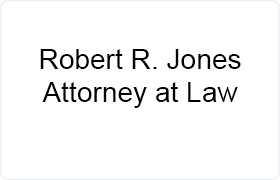Deer Park Misdemeanor Lawyer, Texas
Sponsored Law Firm
-
 x
x

Click For More Info:
-
Robert R. Jones Attorney at Law
3526 E. FM 528 Suite 204 Friendswood, TX 77546» view mapCriminal Defense Expert Representation for Reasonable Rates
If you need representation, call me 24/7.
800-883-8760
Mark W. Bennett
Felony, Misdemeanor, White Collar Crime, Federal Appellate Practice, Domestic Violence & Neglect
Houston, TX Criminal & Federal Defense Attorney
Since graduating from law school in 1995, he has dedicated his career to criminal defense, never stepping foot in the realm of prosecution. Mark posse... (more)
Marshall Douglas Murphy
DUI-DWI, Criminal, Misdemeanor, Felony, White Collar Crime
Doug Murphy: Renowned Board Certified Criminal Law & DWI Specialist Serving Houston, Texas
Doug Murphy stands as a prominent figure in the legal realm of Houston, Texas, with a focus on Criminal Law and DWI Defense. His career, which began i... (more)
David L Singer
White Collar Crime, Misdemeanor, Felony, DUI-DWI
Status: In Good Standing Licensed: 41 Years
FREE CONSULTATION
CONTACTMary E. Conn (Mary)
Misdemeanor, DUI-DWI, Criminal, Criminal
Status: In Good Standing Licensed: 40 Years
Feroz Farook Merchant
Traffic, Misdemeanor, Felony, Criminal
Status: In Good Standing Licensed: 24 Years
Rachel Fraser
Divorce & Family Law, Misdemeanor, Felony, Criminal
Status: In Good Standing Licensed: 23 Years
FREE CONSULTATION
CONTACTMark Anthony Morasch
Domestic Violence & Neglect, Misdemeanor, Felony, DUI-DWI, Criminal
Status: In Good Standing Licensed: 21 Years
 Robert Jones Friendswood, TX
Robert Jones Friendswood, TX AboutRobert R. Jones Attorney at Law
AboutRobert R. Jones Attorney at Law Practice AreasSpecializations
Practice AreasSpecializations



